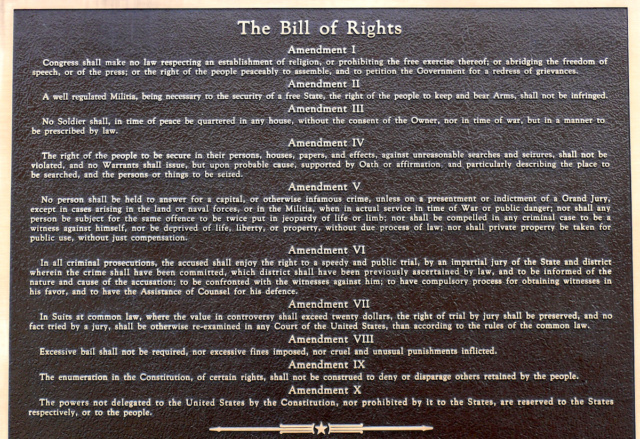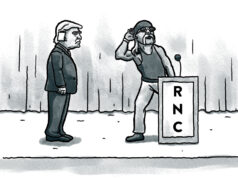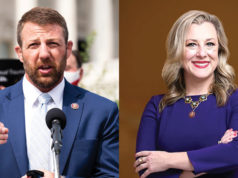During my early years of college, I got the legal perspective on how First Amendment freedoms actually work. The time-honored belief that we could say anything we wanted anytime we wanted to anyone we wanted was, really, just a myth that I had already learned to be false in some ways.
I learned at a young age that I couldn’t talk back to my parents. Or to my teachers. Or, really, to any adults. Freedom of speech was real, kids were told, but it was not absolute. And it didn’t apply to kids anyway, or so I was told.
When fellow students and I set off for college with our eager minds, ready to take control of the world, I was excited. For the first time in our lives, we were going to be able to say anything we wanted anytime we wanted to anyone we wanted.
Except we still couldn’t.
Bosses didn’t honor freedoms of speech. Neither did professors or deans or school presidents. Even friends and classmates would take offense at some of the ridiculous words coming out of our mouths. As it turned out, being an adult didn’t alter the limits on our freedoms of speech after all.
‘Second Amendment people’
I tell you this to provide some context for common sense misconceptions involving recent statements made by presidential candidates. More specifically, the latest controversial words spewing out of Donald Trump’s mouth started with a simple history lesson that went much further.
“If she gets to pick her judges, nothing you can do, folks,” Trump said in reference to Hillary Clinton who — if elected — would have the power to nominate the next Supreme Court justice.
Aside from the obvious statement about how our system of choosing justices works — after all, EVERY president gets to nominate a Supreme Court justice when there is a vacancy — Trump went on to expound, “Although the Second Amendment people — maybe there is, I don’t know.”
I’ll admit, a second-grader might not make the immediate connection in this statement. Maybe. But it was clear from their reactions that Trump’s audience members knew exactly what their candidate had meant.
Trump didn’t call upon anti-abortionists or Christians or conservatives or even Republican voters as a whole. None of those groups of people immediately bring to mind a vision of weapons being fired. Instead, he specifically said “Second Amendment people.” And then he flashed the famous Trump smirk that lets us know there was nothing off-the-cuff or misdirected about his statement.
We knew what he meant, and he said it exactly the way he wanted to say it.
Statement smacks of violence
The immediate spin from Trump’s management team was that he “clearly” was focusing on Second Amendment advocates showing their voices at the voting booth or through NRA influence in Washington, D.C. For those people who believe this, I can only ask: How’s that Kool-Aid taste?
On its own, Trump’s Second Amendment reference is the kind of statement that smacks of violence, even in ambiguity. It inspires certain mindsets to take action in a way with which they are quite comfortable. As someone who was born and raised in Oklahoma, I have met my fair share of conservatives who know their way around an assault rifle better than they know their way around a voting booth. To them, firing a weapon is as American as hot dogs, Grandma’s apple pie and hating the “guv’ment.”
This latest statement from Trump followed up on his encouragement for hackers to assist him in his tireless search for Clinton’s lost emails. Yes, because it is so important for criminals to work with the same guy who refuses to show transparency with his own private tax documents and who came up short on his quest to disclose the “true” nature of President Obama’s birthplace. It all reeks of hype, but it is far too dangerous to dismiss.
We shouldn’t forget Trump is a man who insisted that he could shoot someone in the streets and still get our votes. Nobody in their right mind is so arrogant or foolish. Yet, months after that ridiculous statement, here we are talking about the man who won the GOP nomination.
First Amendment important, but so are its limits
As a long-time First-Amendment proponent, it is especially terrifying to me that Trump got a free pass to abuse my favorite amendment to promote the violent nature of the Second Amendment. And don’t get me wrong, I am an advocate for gun ownership. The thing is, I believe in a more reasonable Second Amendment than the one that has existed for more than two centuries. But we can talk about that another time.
Which brings us back to what I learned in college. There are actually limits on what I am allowed to say — the biggest limit being one that prevents people from falsely shouting “Fire!” in a crowded theater. Also, there have been distinctions drawn between what we can say or write about public figures and private figures. In all, First Amendment freedoms of speech have been limited for a long time, and Trump is close to stomping on those limits.
As a long-time advocate for transparency and openness in government, I am a fan of presidential candidates being able to make comments about their opponents that they might otherwise keep to themselves for fear of offending the moderate voter. But Trump is appealing to a lack of education and an absence of common sense in our nation to add to his base. Otherwise, he’d be trolling for votes with middle-aged white males who sit at the country club card table and dream about how many small businesses they could crush if only their industries weren’t regulated.
It can be humorous when we think of “our” candidate telling “their” opponent that they have been “fired.” But Trump’s sense of humor — as it has been labeled by some of his supporters — is borderline illegal. It is one thing to talk about our displeasure with a person. It is something completely different to incite a specific group to violent action against a named target.
Trump is certainly something completely different.






















